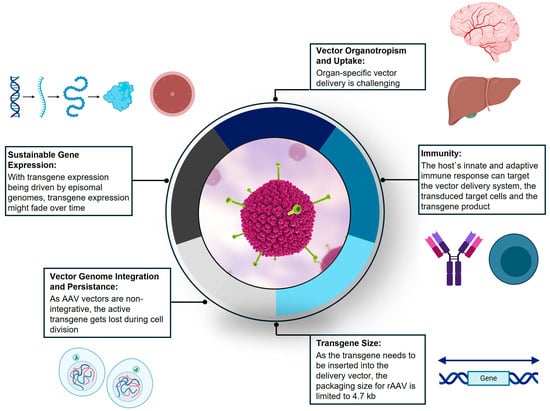
**Unlocking the Brain’s Defensive Barrier: A Milestone in Neurological Care**
The human brain features an advanced protective mechanism called the **blood-brain barrier (BBB)**, which shields it from harmful agents while allowing vital nutrients to support its well-being. Nonetheless, this fortress-like structure creates a major obstacle—it inhibits numerous life-saving drugs from accessing their desired destinations in the brain. For years, this challenge has presented one of the most significant obstacles in neuroscience, particularly regarding intricate neurological disorders such as Alzheimer’s and ALS. Now, researchers at Mount Sinai have achieved a groundbreaking innovation: they have created a molecular delivery system capable of effectively overcoming this barrier.
Published in *Nature Biotechnology* (doi: [10.1038/s41587-024-02487-7](https://doi.org/10.1038/s41587-024-02487-7)), this pioneering development has the potential to revolutionize the approach physicians take in treating brain-related ailments, setting the stage for transformative therapies.
—
### **Grasping the Blood-Brain Barrier’s Function**
The blood-brain barrier serves as an intricately selective shield. Made up of tightly packed endothelial cells that line the blood vessels in the brain, it permits only critical molecules (such as glucose and oxygen) to pass while blocking pathogens, toxins, and larger molecules. Although this mechanism is essential for preventing brain infections and ensuring neural health, it also hinders the majority of drug molecules, including the large therapeutic agents necessary to address debilitating illnesses like Alzheimer’s, Parkinson’s, and ALS.
Currently available methods for targeting the brain—such as specialized intrathecal injections and direct drug infusions—are frequently invasive, costly, or ineffective in achieving a broad distribution of medication.
—
### **Mount Sinai’s Groundbreaking Advancement: The BCC Delivery System**
The researchers at Mount Sinai have designed a molecular “key” termed the **blood-brain barrier-crossing conjugate (BCC)** system. This innovative technique draws inspiration from the body’s inherent biological functions—specifically, a process known as **γ-secretase-mediated transcytosis**. This transcytosis mechanism serves as a conveyor across cell membranes, and the BCC system utilizes this process to transport therapeutic molecules discreetly through the BBB.
Dr. Yizhou Dong, Professor of Immunology and Immunotherapy at Icahn Mount Sinai, states: “While the blood-brain barrier serves as a crucial defense mechanism, it also creates a substantial challenge for drug delivery to the brain. By imitating existing cellular processes, we managed to circumvent its limitations without inflicting damage.”
The BCC system is exceptionally innovative as it permits large molecules—like **oligonucleotides**, targeting specific genes—to penetrate into the brain, a feat that was previously unattainable with conventional intravenous medication delivery.
—
### **Evaluating the Technology: New Hope for ALS and Alzheimer’s Disease**
The team assessed their BCC platform using mouse models with **BCC10**, a compound specifically aimed at targeting genes associated with ALS and Alzheimer’s disease. The outcomes were remarkable:
– **ALS Treatment**: The BCC system effectively delivered oligonucleotides that inhibited the **Sod1 gene** activity, linked to the emergence and progression of ALS. TLS mouse models demonstrated considerable reductions in disease-related markers.
– **Alzheimer’s Treatment**: It also targeted the **Mapt gene**, known for producing **tau protein**, a significant contributor to Alzheimer’s and other types of dementia. Mitigating abnormal tau accumulation is vital for preventing cognitive decline in patients.
In both scenarios, the treatment revealed not just efficacy in mouse models but also promising results when tested on human brain tissue samples in laboratory settings. Additionally, adverse effects in test subjects were minimal, with no significant damage noted in critical organs such as the liver, kidneys, or heart at therapeutic levels.
—
### **What Does This Development Mean for the Future?**
The BCC system heralds a fresh perspective in precision medicine for neurological disorders. By facilitating the targeted delivery of large therapeutic molecules, this platform could enable treatments for ailments that have long resisted effective medical care, encompassing:
– **Neurodegenerative Diseases**: Including Alzheimer’s, ALS, and Huntington’s disease
– **Brain Tumors**: Allowing the targeted delivery of chemotherapeutics directly to glioblastomas
– **Mental Health Conditions**: Paving the way for biologics aimed at psychiatric disorders like depression or schizophrenia
– **Rare Genetic Disorders**: Addressing conditions stemming from enzyme deficiencies or genetic anomalies
Moreover, intravenous administration enhances patient accessibility to treatment, reducing reliance on invasive surgical methods for drug delivery directly into the brain.
—
### **The Significance of This Advancement**
This progress has the potential to redefine drug delivery methods for neurological disorders. By bypassing the brain’s stringent security mechanisms, Mount Sinai’s BCC system could provide life-altering treatments to millions suffering from conditions previously regarded as untreatable.
As research continues to advance, the next essential phase will involve clinical trials in humans. If these trials yield positive outcomes, the BCC platform could